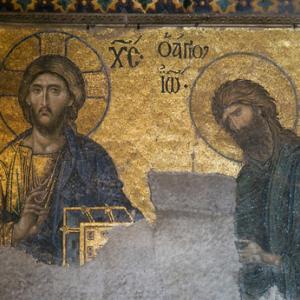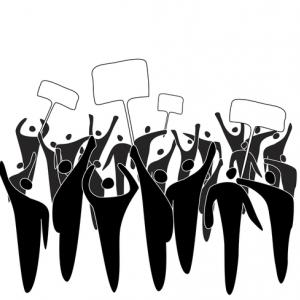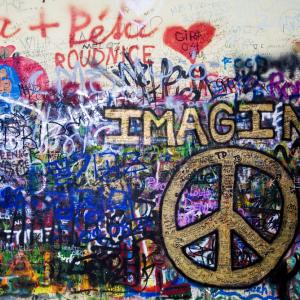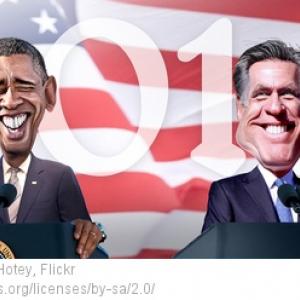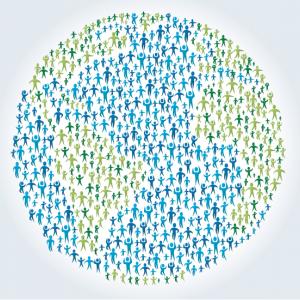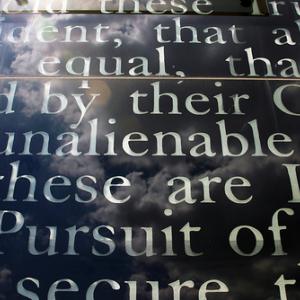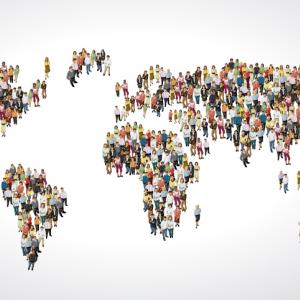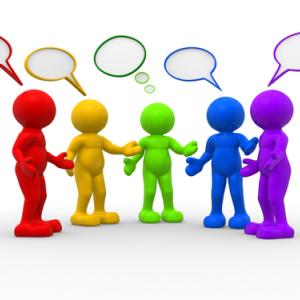
The Rev. Brian E. Konkol serves as Chaplain of the College at Gustavus Adolphus College. Through the Office of the Chaplains, he is responsible for accompanying the Gustavus community by integrating faith and spirituality into the fullness of learning and life.
Konkol is originally from Amherst Junction, WI, and is a graduate of Amherst High School (1997). He completed a Bachelor of Science degree in Criminal Justice (2001) from Viterbo University (La Crosse, WI), in addition to a Master of Divinity from Luther Seminary (St. Paul, MN), and was ordained with the Evangelical Lutheran Church in America (ELCA) in 2005.
Posts By This Author
What Do We Believe: Affirmations of Faith and Invitations for Expression
A “creed” is an authoritative expression of belief, and within many religious communities, such statements generally emphasize a core affirmation of faith.
In addition to articulating primary convictions, creeds are used to oppose alleged falsehoods. For example, the Nicene Creed, composed in the fourth century, is a Christian proclamation that – among other things – affirmed the divine nature of Jesus, and was thus directed against those who believed otherwise. The Apostle’s Creed, developed in the first or second century, emphasized the humanity of Jesus, as some groups rejected such notions. While the history of Christianity is filled with numerous creeds, the Apostle’s Creed and Nicene Creed continue to serve as primary declarations of faith for millions of Christians around the world.
...
The following is my attempt to draft a contextual creed. In it I sought to stay within the Trinitarian formula, I stayed within the self-imposed length restrictions (it contains 164 words!), my draft has developed over the course of time, and because I fully acknowledge its many shortcomings and limitations, I will surely alter it may times into the future:
On the Incalculable Power of the People
According to Article 19 of the Universal Declaration of Human Rights, “Everyone has the right to freedom of opinion and expression; this right includes freedom to hold opinions without interference and to seek, receive and impart information and ideas through any media and regardless of frontiers.”
Similarly, the First Amendment to the United States Constitution declares “Congress shall make no law…prohibiting the free exercise of; or abridging the freedom of speech…”
While certain opponents exist, most of us agree that free speech is an essential ingredient for a mature democracy, thus it should be encouraged, protected, and further developed. With these thoughts in mind, while we should indeed celebrate the numerous positive outcomes of free speech in the USA, we should also account for its costs, for even the most worthy of causes – such as free speech – bring an assortment of unintended negative consequences.
As our November Election Day draws closer, we are mindful that a defense of free speech has led to millions of dollars directed toward ads, phone calls, literature distribution, and other activities that seek to sway the electorate. As countless studies have shown, the totality of these campaign strategies holds a significant impact on voter decisions and overall turnout.
Isolation, Integration, and the International Day of Peace
According to the Stockholm International Peace Research Institute (SIPRI), the United States currently spends more than $711 billion per year on military expenditures, which is – by far – the most of any country in the world.
In fact, if one were to combine the totals of the next fourteen nations on the list (China, Russia, the United Kingdom, France, Japan, Saudi Arabia, India, Germany, Brazil, India, South Korea, Australia, Canada, and Turkey), their combined amount is similar to the USA. All together, the USA provides about 43 percent of worldwide military costs, and in addition, the USA per capita ($2,240) and percent of Gross Domestic Product (4.8 percent) in relation to military funding is far greater than any other nation in the world.
With these statistics in mind, one is provoked to ponder some important questions. For example, what is revealed to us about the USA – and our world in general – when military expenses constitute such a significant percentage of a government budget?
In specifics, why does the USA spend far more on its military than any other country? In addition, what is revealed to us about the condition of our global village when $1.73 trillion is allocated each year to military funding? As stated by Sojourners CEO Jim Wallis, “A budget is a moral document. It clearly demonstrates the priorities of a family, a church, an organization, or a government. A budget shows what we most care about.”
Climate Change, Poverty, Distractions, and Denial
Because the scientific evidence surrounding climate change is clear, and the implications for humankind are many, the response to these global challenges needs to be persistent, organized, and significant. As Jesus calls upon humankind to “love thy neighbor," and as the Old Testament prophets remind us to strive for justice, we recognize that within a deeply connected world “neighbor” implies all that God has created, and injustice anywhere is injustice everywhere.
So an implication of Jesus’ words and actions is to share and receive the Good News not only on Sunday mornings, but through daily acts of long-term advocacy that promotes sustainable livelihoods. With COP18 in Qatar on the horizon, the time has come when humanity can no longer afford to fight over our resources, and the moment is upon us to prod our elected officials toward legally binding legislation that values the gifts of creation that God has entrusted us to manage.
A Season of Civility in Response to Campaign Incivility
"In a democracy, the people get the government they deserve." – Alexis de Tocqueville
With the Democratic and Republican national conventions behind us, and an increase of political campaigning in front of us, we recognize the timeliness of the above quotation from Alexis de Tocquville. In a democracy the citizens choose their government, thus we indeed receive the government we deserve. As Lisa Sharon Harper recently stated:
"In its purest form, politics is simply how we organize our life together in society…in a Democratic Republic like our own, the [people are] ultimately responsible for the policies, laws, and structures that guide daily life. As we vote for candidates and ballot measures, we shape our society."
With such thoughts in mind, we affirm the collective ability to “shape our society," but we do so not only through the ability to choose our candidates and pass ballot measures, but we also possess the capacity to shape the process of how our leaders and policies are selected. In other words, while many complain about the high quantity and low quality of political campaigns, we are confronted with a harsh reality: In a democracy, we get the political campaigns we deserve.
A Conversion of Connections in the Global Village
We are connected with people and places through ways and means unlike any previous generation. We live in a “global village."
We are connected through worldwide round-the-clock television networks, rapid international travel, mobile phones, Skype, and wonders of the Internet. But while such connections are indeed profound, the bonds of our global village run far deeper, for we are also linked through global events and international endeavors. Whether it is sporting events like the Olympics, a royal wedding, or various natural disasters that capture worldwide attention and compassion, the reach and depth of our global village passes through time zones and crosses national boundaries.
While these characteristics of the global village are astounding, our connections run even deeper as a result of the global process of production, distribution, consumption, and waste. In other words, the architects of our global economy intentionally linked local communities with others that are thousands of miles away. And so, while these massive multinational connections are often unnoticed in daily North American life, once we take a deeper look, we recognize that they are not only evident, but are also far from impartial.
Life, Death, and Connectedness in the Company of Strangers
In the recent past there was a small group of children gathered in the village of Tucville, located near Georgetown, Guyana. After a few hours of games on the street, the curious crew wandered away from adult supervision and explored a nearby abandoned sewage facility. The children enjoyed their playful investigation, but as they walked a narrow path near the edge of a raw sewage container, a 5-year old girl named Briana Dover accidentally slipped, fell, and quickly sank to the bottom.
As to be expected, Briana’s friends immediately screamed and ran for help, but as neighbors and witnesses rushed to the site, they all stood in shock. Although some considered diving into the tank, no one stepped forward. The container was too large, the smell of rotten feces too disgusting, and the actions required far too dangerous. With each passing moment Briana held to the brink of life at the bottom of the sewage reservoir, moving closer to death with each tick of the clock.
In the meantime, a middle-aged Rastafarian named Ordock Reid heard the commotion. After initially thinking it was a worker dispute, he eventually examined the situation, and as he approached the tank, he was greeted with loud screams and anguished faces. When he was told about Briana’s predicament, he acted immediately. Ordock Reid – a total stranger – took off his clothes, tied-up his dreadlocks, fastened a rope to his waist (handed the other end to an onlooker), and submerged himself through the muck and filth in an attempt to rescue Briana Dover.
Citizens United, Freedom of Speech, and the Liberation of Listening
The impact of Citizens United v. Federal Election Commission (2010) is experienced with increased intensity as we approach Election Day. Since the U.S. Supreme Court ruled that corporations and unions have a First Amendment right to independent political expenditures, certain portions of the Bipartisan Campaign Reform Act were reversed.
As a result, the voices surrounding political campaigns have risen in strength and size. And so, while a variety of viewpoints exist on the consequences of Citizens United, most agree that it has dramatically altered the culture of U.S. politics, and has thus sparked major discussion on the reach and limits of freedom of speech.
Due to the ramifications of Citizens United, we should indeed recognize and critique the role that freedom of speech holds within a mature democracy. However, as we focus on free speech, the time has come to also consider the contributions of its equally important companion, the responsibility to listen. In other words, as we ponder the primary ingredients of a healthy society, the delicate balance between freedom of speech and the responsibility to listen should be held as a critical priority.
Sub-Human: A Justification of Exploitation
"We hold these truths to be self-evident, that all men are created equal, that they are endowed by their Creator with certain unalienable Rights, that among these are Life, Liberty, and the pursuit of Happiness (The Declaration of Independence, 1776)."
These words are some of the most familiar and beloved in the English language, as they offer a moral vision for humanity, and a standard to which the United States of America should strive.
While such expressions of freedom should indeed be cherished, we often forget the harsh reality that many contributors of the Declaration of Independence were also active participants in the brutal act of slavery. As the English abolitionist Thomas Day wrote in 1776: “If there be an object truly ridiculous in nature, it is an American patriot, signing resolutions of independency with the one hand, and with the other brandishing a whip over his affrighted slaves.”
In addition to racial inequality, while Abigail Adams reminded her husband John to “remember the ladies” during the Constitutional Convention of 1787, her warnings were mostly disregarded, and as a result, women were also marginalized, and they were relegated as dependents of men, without the power to own property, make contracts, or vote. In other words, John Adams’ reply to Abigail’s challenge was far from considerate: “As to your extraordinary code of laws, I cannot but laugh …”
An Olive Agenda: Our Path to Economic Opportunity and Environmental Sustainability
An examination of current public debate reveals a divide between the “brown agenda” of economic opportunity and the “green agenda” of environmental sustainability.
On the one hand, a “brown agenda” concerns economic opportunity, or in other words, the alleviation of poverty. In light of ongoing distress surrounding malnutrition, infant mortality, and unemployment, the brown agenda is important, urgent, and worthy of support. On the other hand, a “green agenda” relates to environmental sustainability and care for the Earth. As scientific reports affirm the reality of climate change, and in recognition of decreased access to clean water and biodiversity around the world, the green agenda is also deeply important, urgent, and worthy of support.
With the above thoughts in mind, one recognizes that both brown and green agendas are essential for the promotion of life. However, the proponents of each agenda seem to be at odds with the adherents of the other. For example, far too many with a “brown agenda” believe that the best way to reduce poverty is to reduce environmental controls, and to the contrary, those engaged with the “green agenda” too often place the needs of the Earth before the livelihoods of the poor and marginalized. As a result of this persistent struggle between “brown” and “green," progress on both agendas is limited, and our path toward economic opportunity and environmental sustainability is severely off course.
High Appreciation or Holy Adoration? The Slippery Slope of Sports
While I strongly believe that physical activity and participation within sports can offer excellent avenues for education and wellness on an individual and community level, my role as a fan of sports has been significantly tested over recent years. In other words, I have come to wonder whether or not something inherently good, such as sports, has reached excessive levels to the point of having far too many negative consequences in society. For example, in the U.S. we experience massive inequality and outcry surrounding government budget shortfalls, yet we seem to have more than enough funds for stadiums, tickets, TV packages, and team-related memorabilia. While our public servants receive salary cuts and loss of jobs, millionaire professional athletes argue with billionaire owners over income distribution and so-called “fairness." And of course, while I hear countless people complain about how busy they are and how financial times are tough, those same individuals seem to have plenty of time to watch a few hours of sports on TV each night, and more than enough resources to support their favorite teams. With all of this in mind — and one could list countless more examples — we have to wonder whether our priorities have been distorted, as our collective love for sports may have crossed the line from entertainment to idolatry. Or in other words, how we went from being spectators and participators to devout worshippers.
Bread and Circus
Near the turn of the 2nd century A.D., the poet Juvenal published a collection of verses titled Satires. Among other things, the text was intended to spark discussion about social norms at a time when the masses were increasingly withdrawn from civil engagement.
In specifics, Juvenal wrote:
…everything now restrains itself and anxiously hopes for just two things: bread and circuses.
According to Juvenal, the public of his day and age was growing less concerned about social responsibility due to personal pursuits of bread (comfort) and circus (entertainment). In addition, he believed political leaders used the distribution of comfort and entertainment as a way to sedate the population, distract them, and open opportunities for systemic manipulation.
Juvenal believed far too many citizens were far too willing to cooperate in their own exploitation.
What I find incredibly intriguing — and disconcerting — about Juvenal’s observations is that, numerous generations later, it can be argued that much of what he considered to be problematic in his era can now be found in North America.
Election 2012: Concrete, Chameleons, and Clay
One of the common ditches that political candidates fall into is the temptation of a “concrete” character.
Among other things, one who is concrete holds to views that are supposedly unchanging and non-negotiable, and thus they possess an inability to compromise with those who may have diverse perspectives. A concrete character is often grounded in the belief that she/he “knows” who she/he is, and because of these unbreakable principles will not waver in her/his understanding regardless of the setting and potential consequences.
In other words, a person with a concrete character is immovable, solid, and resolute, and as a result, nearly impossible to bend or twist. While there is much to be admired in those who display the concrete character, there is also much to be criticized.
For example, while concrete may be strong and resolute, it is also fixed in time, stiff, and inflexible, and is thus unable to change regardless of conditions, societal advances, and circumstances. Thus, concrete — sooner or later — will crack.
As the current generation experiences cultural and technological change at a rate far greater than any era before it, those who refuse to be changed by unfolding knowledge and wisdom allow life to pass by while remaining trapped in one place. Therefore, while the concrete character may appear to be one of strength, it is ultimately weak, vulnerable, and unsustainable.
A Dialogue about Dialogue
It is difficult to discuss "hard topics" with people with whom I disagree.
When someone supports a political candidate whom I resist, holds to a theological understanding that I find confusing, or when I hear opposing points on climate change, poverty, global economics, human sexuality, etc., it is challenging to listen with a genuinely open ear.
However, what I have found is that, even if I feel passionate about a particular point of view, when I am able to open up and genuinely listen to others, great things take place throughout the exchange. Through honest and open interaction, an increased level of mutual respect and understanding is achieved, we learn to understand why things are perceived the way they are, and the overall strength of the relationship grows.
In our current North American climate of political polarization, religious division, and socio-economic seclusion, it is time to have more dialogue on — among other things — dialogue.
A friend of mine once said, “a true and genuine dialogue only takes place when each person is willing to be ‘converted’ to the other side of the argument.” At first I was skeptical of this remark, as I wondered how I could ever open myself up to being “converted” on certain topics about which I felt strongly. But now I am beginning to see the wisdom in such a statement.
